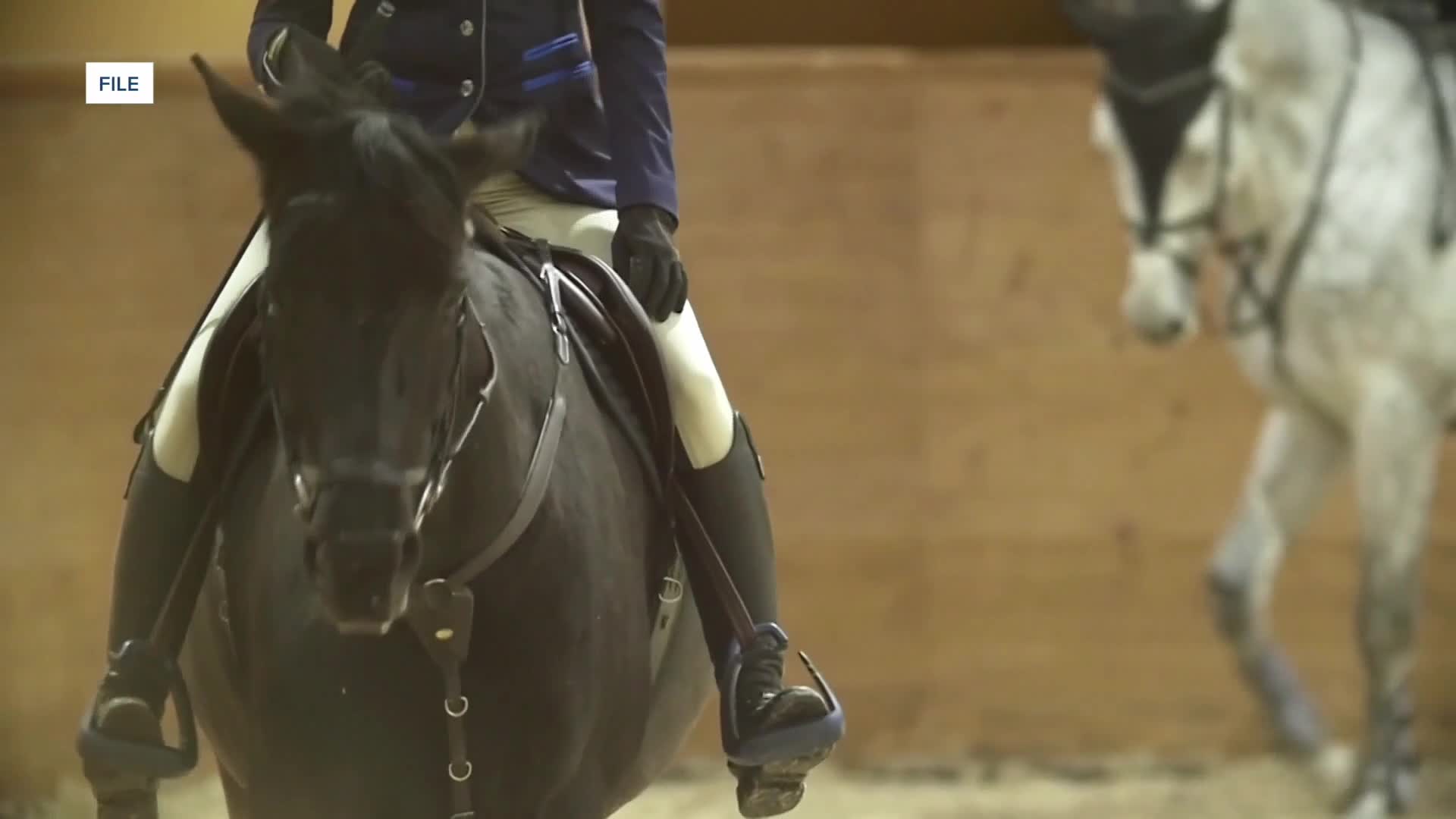BROKEN ARROW, Okla. — Empty stands, sloshy grounds, and no horses in sight.
The scene at the Broken Arrow round-up club is reminiscent of COVID-19, but this time, it’s a different disease putting things on hold; Equine herpesvirus, or EHV for short.
WATCH: EHV OUTBREAK: Equine world on hold as disease hits Oklahoma
The Oklahoma Department of Agriculture is monitoring at least 2 cases in Oklahoma.
The agriculture department is also laying down new requirements for interstate horse travel.

“We see it manifest as a runny nose, a dry cough, a high-fever,” Dr. Lyndi Gilliam, an equine internal medicine specialist at Oklahoma State University said.
She said the best cases of EHV will run its course just like a common cold, but the worst can cause issues with the nervous-system.
When the disease attacks the nervous system, it “causes horses to be unable to walk in a coordinated manner, and even be able to get up from laying down,” Gilliam said.
2 News Oklahoma spoke with Brandon Wren, president of the Broken Arrow Round Up Club.
“We kind of learned about it, like everyone else has, on social media,” Wren said, “I’ve been in the rodeo business for a long time. I started making some phone calls to people way smarter than me. And we made the decision to go ahead and close the Broken Arrow Round Up Club to any equine, any horses whatsoever coming on the property.”
That decision was identical to Gilliam’s advice.
“The best thing they can do is stay home,” Gilliam said, “Large gathering of horses right now puts horses at risk.”
Leadership at the Round Up Club are in wait-and-see mode, intending to make their next decision in 30 days.
Throughout winter, Gilliam says horses can experience respiratory symptoms, just like humans. Though those symptoms are not always indicative of EHV. She says it's best to keep the thermometer handy.
“If we see those signs, those respiratory signs, with a fever, then we need to contact a veterinarian immediately,” Gilliam said.
Wren, and other equine professionals, are holding their breath. Hoping to have this in the rearview mirror before big events, like the National Finals Rodeo, scheduled to start Dec. 4.
“I hope it turns out great. And it will. Just like any other disease, or any other illness, it’ll run its course, just like flu season it’ll run its course,” Wren said.
Stay in touch with us anytime, anywhere --
- 2 News Oklahoma on your schedule | Download on your TV, watch for free. How to watch on your streaming device
- Download our free app for Apple, Android and Kindle devices.
- Like us on Facebook
- Follow us on Instagram
- Watch LIVE 24/7 on YouTube





